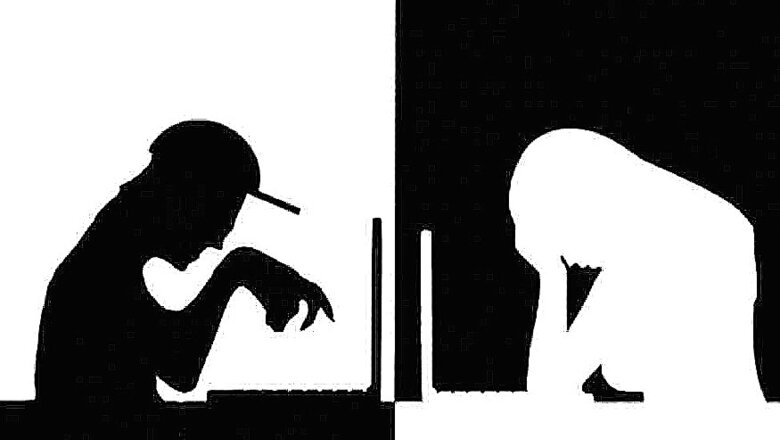
views
Cyber bullying is a prevalent activity around the world — from the trivial trolling on social media, to more serious acts of targeted posts, anonymous stalking and the likes, online activities that can be objected to are a regular occurrence. However, contrary to public understanding, the Indian judiciary does have plenty of provisions to hold these acts accountable and dole out punishments. In light of the recent controversies around 'bois locker room' and 'girls locker room' chats on social media platforms, News18 caught up with N.S. Nappinai, lawyer at the Supreme Court of India, and founder of Cyber Saathi — a digital rights, awareness and empowerment initiative. As Nappinai explains, the key is in raising awareness among the public regarding existing laws, instill a sense of responsibility as well as fear of retribution, and make the process of addressing cyber crime grievances more approachable for everyone. Here are the excerpts.
Q.What laws does India have with regards to cyber bullying?
Earlier, we had Section 66A, which is now being struck down by the Supreme Court of India. With that, we even had a proper, codified law to deal with cyber bullying. But now, with this section being abolished, many believe that there are no laws to safeguard against cyber bullying. That isn’t entirely true.
Effectively, depending on the kind of bullying or action that is being committed, there are enough laws under IPC which can be applied. While no particular section may apply directly, there are more than enough sections and provisions to deal with such cases.
Section 67 essentially deals with obscenity. If anyone publishes obscene content using electronic medium, it can be invoked. 507 refers to anonymous criminal intimidation. IPC Section 354 refers to outraging modesty of a woman. For example here, in case of cyber bullying against a male candidate, 354 will obviously not apply since it is gender specific. However, there are other sections to cover this as well.
Q.For teenage and adolescent internet users, does the Juvenile Justice Act come into play?
Of course it can be. If it is an offence committed against a juvenile, in cases such as revenge porn where a child is threatened on the internet, then it is treated as an offence under a different act. But, for juvenile perpetrators, the Juvenile Justice Act will always apply.
Q.How can the common people be urged to report these offences more frequently?
Particularly for cyber bullying, most people prohibit individuals against making a “big issue” about it, making suggestions such as “why make a big thing about it?”, “it will die out automatically”, etc. Today, cyber bullying has become an issue for the common man, and anyone can be victims of it — even from a very basic tweet. Even that has a legal remedy, against the common perception of whether cyber bullying is even legally punishable or not. Most people do not have the wherewithal to understand the legal aspect of this.
With proper awareness, a vast majority of the internet trolls would not do what they are doing.
For this, I have been a strong proponent for establishing specific laws to deal with cyber bullying, so that a common man will know what the legal remedy is, when faced with such an issue. In fact, even before the remedy, there is a major deterrent factor at play here. But, with proper awareness, a vast majority of the internet trolls would not do what they are doing, if they knew that their acts are legal violations. Hence, having special laws regarding cyber bullying would make a big difference.
Secondly, it is the government’s job to ensure that there is an easy mechanism for filing a case, and through it, also show that the law takes effect. People should be made aware that they aren’t invisible on the internet, and yet, it is shocking to note the kind of offences happening online because people have no fear of retribution. This calls for the need for a strong and effective enforcement mechanism of laws when it comes to online crimes. There is no point in adding new laws, when the existing ones aren’t being put to good use.
Q.How can the young users of the internet be made more responsible for their actions?
Personally, I run an initiative called Cyber Saathi. When people choose to let go of an online crime, in most instances, maybe things will die down. But, it is scary, that in many cases, they do not really die down, and the bully gets emboldened. This is akin to acid attacks on the internet. Whenever a bully gets emboldened, the ferocity of attacks keep increasing. I have personally handled many such cases, where a menial case of trolling became much worse because nothing was done about it from the start.
It is scary, that in many cases, cases do not really die down, and the bully gets emboldened. This is akin to acid attacks on the internet.
The idea behind Cyber Saathi is to explain to people that as victims, they are not responsible for these acts, and should not resort to self flagellation. Cyber Saathi empowers these victims to note that there are legal remedies, and they can be approached easily. One aspect about cyber bullying is that while most conversations revolve around the victim, hardly anybody speaks about the perpetrator. With Cyber Saathi, I’m trying to work on the latter, and particularly highlighting cases of children as the perpetrators.
Even with the locker room cases, we must also look at children as the perpetrators, over and above conversations about children being bullied. In this case, many were of the opinion that the parents should be held primarily accountable. However, we must not establish that children are not legally liable — the Juvenile Justice Act does provide some retributory punishments. Such accountability would go a long way to improve situations such as these.














Comments
0 comment